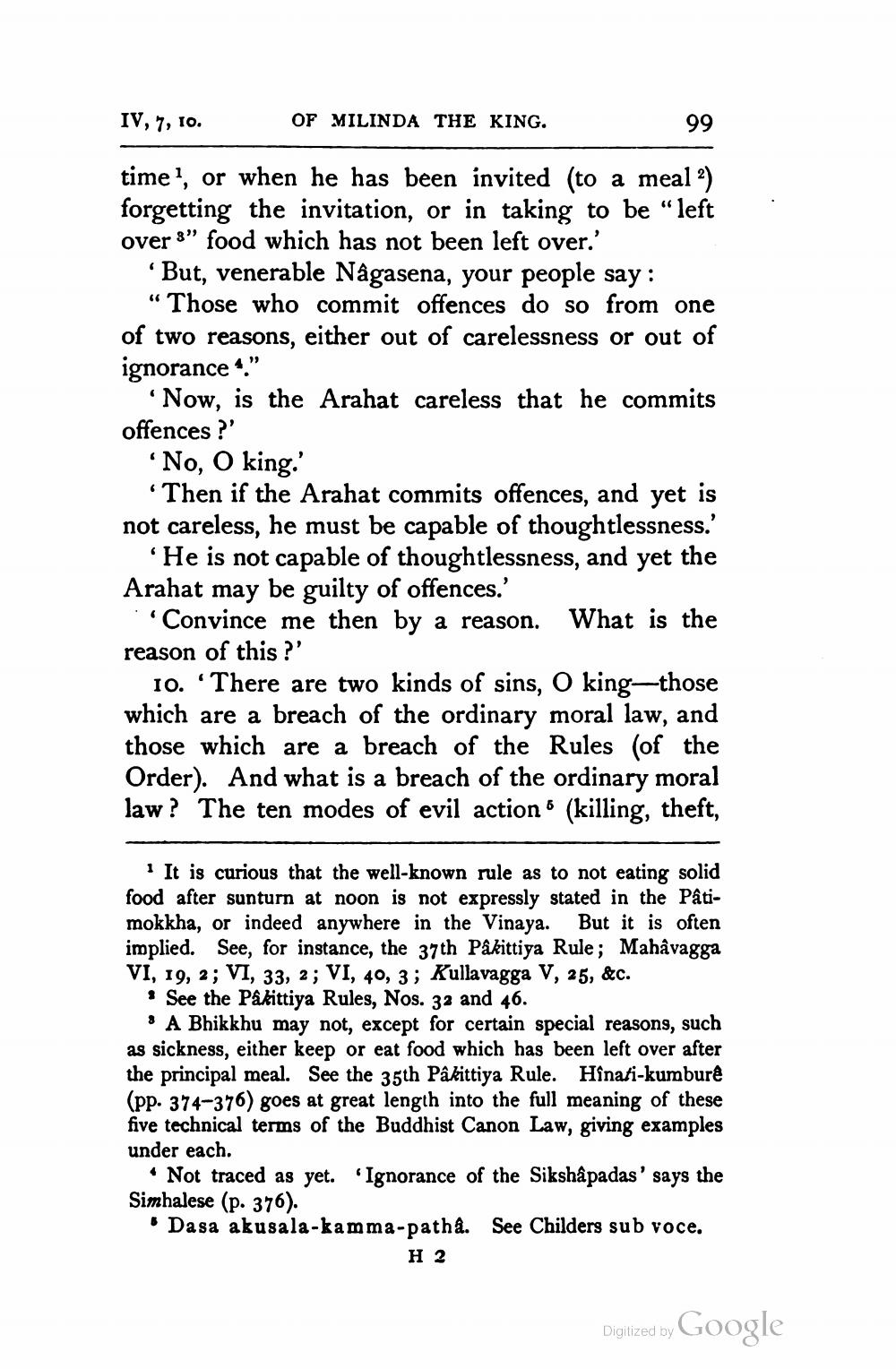________________
IV, 7, 10.
OP MILINDA THE KING.
99
time, or when he has been invited (to a meal 2) forgetting the invitation, or in taking to be “left over 8" food which has not been left over.'
But, venerable Nâgasena, your people say: “Those who commit offences do so from one of two reasons, either out of carelessness or out of ignorance."
Now, is the Arahat careless that he commits offences ?'
No, O king.' *Then if the Arahat commits offences, and yet is not careless, he must be capable of thoughtlessness.'
'He is not capable of thoughtlessness, and yet the Arahat may be guilty of offences.'
Convince me then by a reason. What is the reason of this ?'
10. “There are two kinds of sins, O king—those which are a breach of the ordinary moral law, and those which are a breach of the Rules (of the Order). And what is a breach of the ordinary moral law? The ten modes of evil action (killing, theft,
" It is curious that the well-known rule as to not eating solid food after sunturn at noon is not expressly stated in the Patimokkha, or indeed anywhere in the Vinaya. But it is often implied. See, for instance, the 37th Påkittiya Rule; Mahavagga VI, 19, 2; VI, 33, 2; VI, 40, 3; Kullavagga V, 25, &c. • See the Påkittiya Rules, Nos. 32 and 46.
A Bhikkhu may not, except for certain special reasons, such as sickness, either keep or eat food which has been left over after the principal meal. See the 35th Pâkittiya Rule. Hînati-kumbure (pp. 374-376) goes at great length into the full meaning of these five technical terms of the Buddhist Canon Law, giving examples under each.
• Not traced as yet. "Ignorance of the Sikshậpadas' says the Simhalese (p. 376). . Dasa akusala-kamma-patha. See Childers sub voce,
H 2
Digitized by Google




